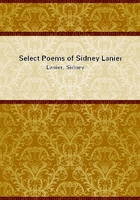
第32章 CHAP. VIII.(7)
Sec. 120. To understand this the better, it is fit to consider, that every man, when he at first incorporates himself into any commonwealth, he, by his uniting himself thereunto, annexed also, and submits to the community, those possessions, which he has, or shall acquire, that do not already belong to any other government: for it would be a direct contradiction, for any one to enter into society with others for the securing and regulating of property; and yet to suppose his land, whose property is to be regulated by the laws of the society, should be exempt from the jurisdiction of that government, to which he himself, the proprietor of the land, is a subject. By the same act therefore, whereby any one unites his person, which was before free, to any common-wealth, by the same he unites his possessions, which were before free, to it also; and they become, both of them, person and possession, subject to the government and dominion of that common-wealth, as long as it hath a being.
VVhoever therefore, from thenceforth, by inheritance, purchase, permission, or otherways, enjoys any part of the land, so annexed to, and under the government of that common-wealth, must take it with the condition it is under; that is, of submitting to the government of the common-wealth, under whose jurisdiction it is, as far forth as any subject of it.
Sec. 121. But since the government has a direct jurisdiction only over the land, and reaches the possessor of it, (before he has actually incorporated himself in the society) only as he dwells upon, and enjoys that; the obligation any one is under, by virtue of such enjoyment, to submit to the government, begins and ends with the enjoyment; so that whenever the owner, who has given nothing but such a tacit consent to the government, will, by donation, sale, or otherwise, quit the said possession, he is at liberty to go and incorporate himself into any other common-wealth; or to agree with others to begin a new one, in vacuis locis, in any part of the world, they can find free and unpossessed: whereas he, that has once, by actual agreement, and any express declaration, given his consent to be of any common-wealth, is perpetually and indispensably obliged to be, and remain unalterably a subject to it, and can never be again in the liberty of the state of nature; unless, by any calamity, the government he was under comes to be dissolved; or else by some public act cuts him off from being any longer a member of it.
Sec. 122. But submitting to the laws of any country, living quietly, and enjoying privileges and protection under them, makes not a man a member of that society: this is only a local protection and homage due to and from all those, who, not being in a state of war, come within the territories belonging to any government, to all parts whereof the force of its laws extends.
But this no more makes a man a member of that society, a perpetual subject of that common-wealth, than it would make a man a subject to another, in whose family he found it convenient to abide for some time; though, whilst he continued in it, he were obliged to comply with the laws, and submit to the government he found there. And thus we see, that foreigners, by living all their lives under another government, and enjoying the privileges and protection of it, though they are bound, even in conscience, to submit to its administration, as far forth as any denison; yet do not thereby come to be subjects or members of that common-wealth. Nothing can make any man so, but his actually entering into it by positive engagement, and express promise and compact.
This is that, which I think, concerning the beginning of political societies, and that consent which makes any one a member of any common-wealth.